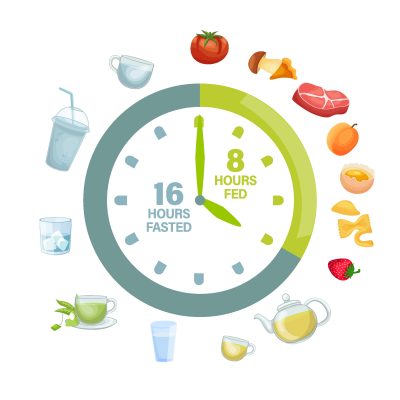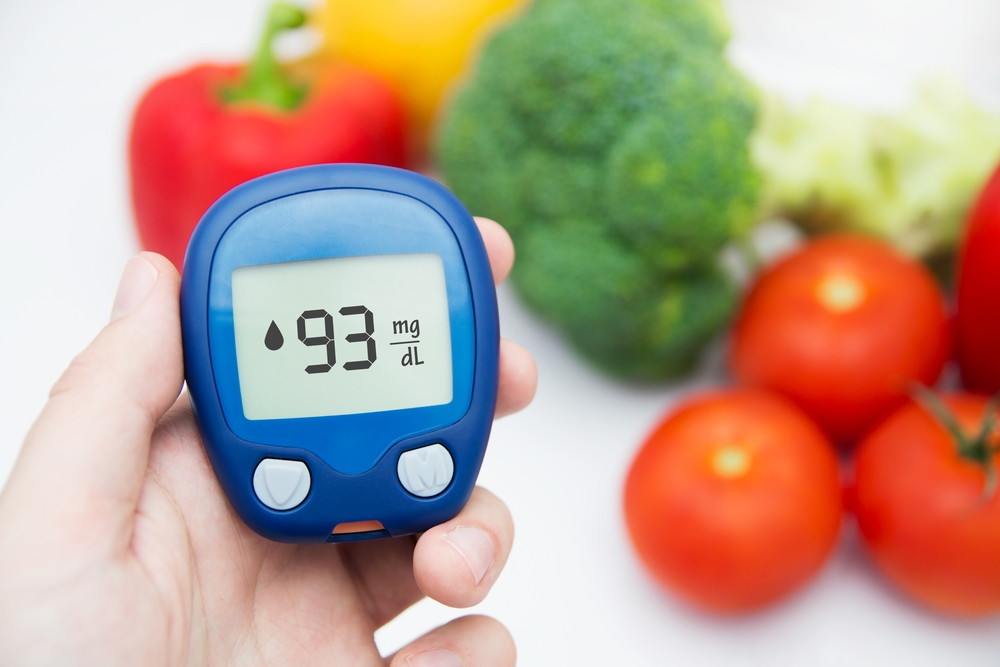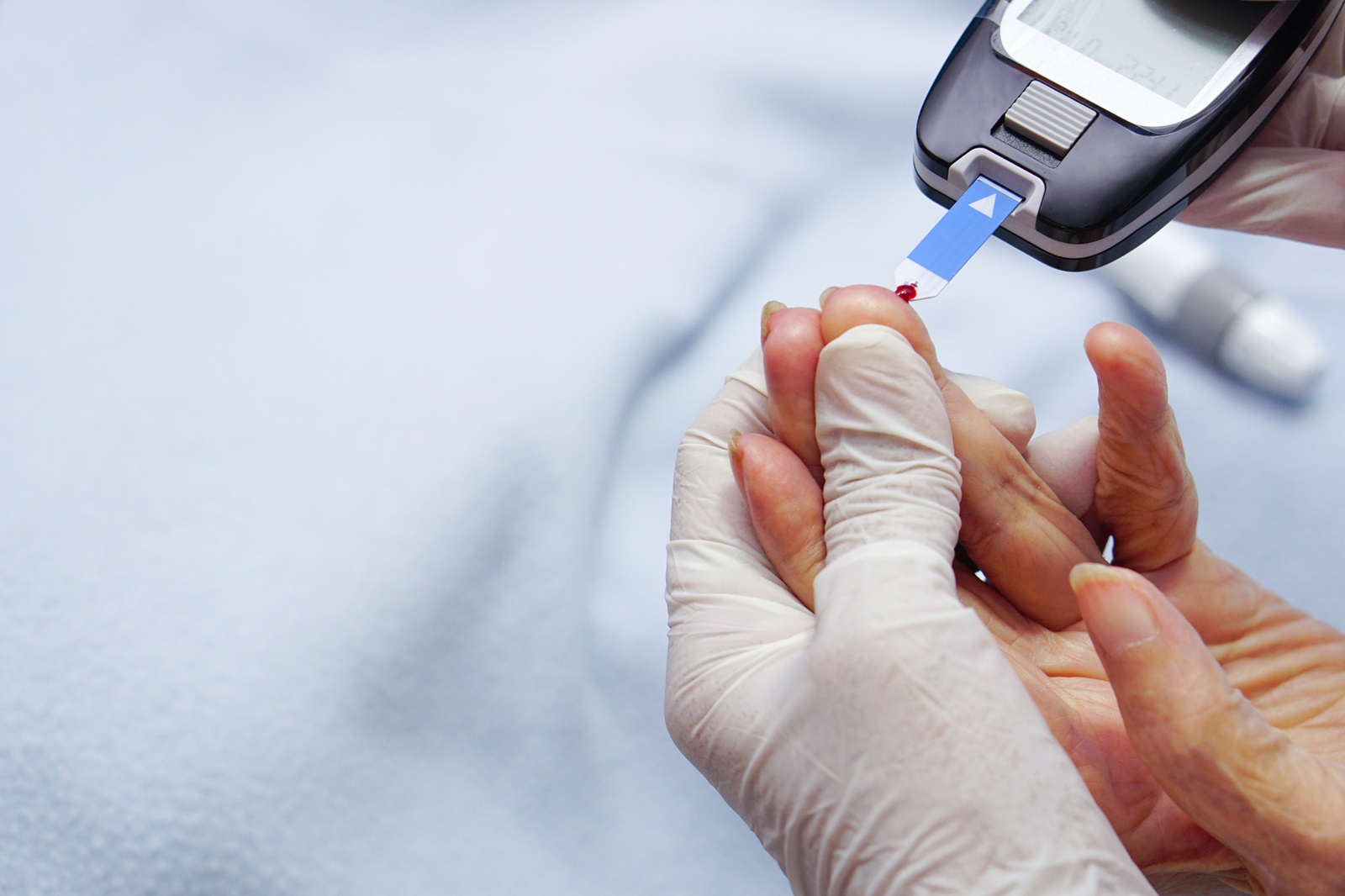
UP TO 40% OFF SITEWIDE






Understanding Normal Glucose Level in Fasting


Table of Contents
- Understanding Blood Sugar and Glucose Levels
- Normal Blood Sugar Level One Hour After Eating
- Normal Glucose Fasting Levels
- Fasting Blood Glucose Ranges
- Blood Sugar Levels 2 Hours After Eating for Non-Diabetics
- Impacts of Fasting on Blood Sugar Levels
- Can Diabetics Do Fasting?
- Benefits of Fasting in Diabetes
- Improving Insulin Sensitivity
- Weight Loss and Blood Sugar Control
- Tips for Diabetics to do Fasting
- Proper Hydration
- Regular Monitoring of Blood Sugar
- Balanced Nutrition
- Supplementing with SugarMD Super Berberine
- Conclusion
- About The Author
Maintaining a normal glucose level in fasting is a key aspect of health that many people tend to overlook. The human body operates like a well-oiled machine, with multiple interconnected systems working round the clock to maintain optimal health. One of these essential systems involves regulating the body's glucose levels. These levels can change under various conditions, fasting being a significant one.
Fasting the practice of abstaining from all or some kinds of food or drink for a set period can dramatically affect glucose levels in the bloodstream. It's crucial to understand the effects of fasting on blood sugar levels, particularly for those with diabetes or other health conditions that may affect glucose metabolism.
Whether you are a health enthusiast interested in the science of fasting, a diabetic considering fasting as part of your lifestyle or someone merely curious about normal glucose levels during fasting, this article aims to provide a comprehensive understanding of the topic.
It covers everything from blood sugar levels after eating to the impacts of fasting on these levels, along with tips for diabetics who plan to fast. The goal is to provide a useful resource that can guide you through maintaining normal glucose levels while fasting thereby promoting overall health and wellness. So, let's delve into the intriguing world of glucose and fasting.

Fasting in diabetes - how it looks as an illustration!
Understanding Blood Sugar and Glucose Levels
It is essential for anyone aiming to maintain good health and particularly for those dealing with conditions like diabetes, to grasp the concepts of blood sugar and glucose levels. Understanding these concepts is the initial step in effectively managing your health. First and foremost, we need to understand what glucose is. Glucose is a type of sugar that plays a significant role as the primary source of energy for our bodies.
This simple sugar is derived from the foods we consume, particularly carbohydrates. These include bread, pasta, rice and sweet foods but we also get glucose from fruits, vegetables and dairy products. Our bodies break these foods down into glucose during digestion which is then absorbed into our bloodstream, leading to an increase in our 'blood sugar level'. The term 'blood sugar level' refers to the concentration of glucose present in your blood at any given time. It is usually measured in milligrams per deciliter (mg/dL).
These levels are dynamic and tend to fluctuate throughout the day, influenced by factors like food intake, physical activity, stress and overall health status. For instance, when you consume food, your blood sugar levels rise as the digested food is converted into glucose. In contrast these levels drop during periods of fasting or extensive physical exertion as the body uses stored glucose for energy.
Now that we understand the primary source of energy for our body, let's talk about how our body utilizes this glucose. This process involves a hormone called insulin which is produced by the pancreas. Once glucose enters our bloodstream the pancreas releases insulin which acts like a key, allowing glucose to enter our body cells. In the cells, glucose is either used immediately to produce energy or stored for future use.
This delicate interplay between glucose and insulin is critical for maintaining our body's equilibrium. When this balance is disrupted, it can lead to conditions like diabetes. Diabetes is a disease characterized by the body's inability to effectively regulate blood sugar levels. This could be due to insufficient insulin production (Type 1 Diabetes) or the body's inability to use insulin properly, known as insulin resistance (Type 2 Diabetes).
But why is controlling your blood sugar levels so important? Consistently high blood sugar levels, known as hyperglycemia can lead to serious health complications over time. These can include heart disease, nerve damage, kidney disease and vision problems. On the other hand, if your blood sugar levels drop too low, known as hypoglycemia, it can cause symptoms like confusion, dizziness and even loss of consciousness. Long term, it can also impact your heart and brain health.
For these reasons, managing your blood sugar levels is crucial. Knowing what impacts your levels, understanding how to measure them and making lifestyle adjustments to keep them in a healthy range can significantly contribute to maintaining overall health and avoiding complications. In a nutshell, glucose is more than just a type of sugar – it is a fundamental aspect of our bodily functions, energy production and overall well-being.
Your blood sugar level is the measure of this vital nutrient in your body and it serves as an indicator of how well your body is metabolizing glucose. A clear understanding of these concepts is key to maintaining a healthy lifestyle, whether you have diabetes or are simply aiming to maintain optimal health. With this knowledge in hand, you are better equipped to make informed decisions about diet, exercise, stress management and potentially beneficial supplements like SugarMD Super Berberine.
Normal Blood Sugar Level One Hour After Eating
Understanding the body's glucose levels at various points throughout the day is critical to grasping the bigger picture of your overall health. One crucial benchmark is the blood sugar level one hour after eating, often referred to in medical terms as postprandial glucose. The concept of postprandial glucose refers to the blood sugar levels measured after eating, particularly at the one-hour mark.
This is a vital measure as it gauges how your body handles glucose from the food you consume. In individuals with a healthy metabolism, insulin, a hormone produced by the pancreas, regulates this glucose influx. It helps cells absorb glucose from the bloodstream and, in turn, keeps blood sugar levels within the normal range. In general the blood sugar level one hour after eating should be less than 180 mg/dL.
A reading higher than this may suggest that your body is not effectively managing the glucose influx from your food, possibly because it's not producing enough insulin or the body's cells are not responding to insulin properly. In the long run, consistently high postprandial glucose levels could indicate prediabetes or diabetes which is why regular monitoring is crucial.
Normal Glucose Fasting Levels
While postprandial glucose levels provide a snapshot of how your body manages glucose right after meals, fasting blood glucose levels offer a different perspective. These levels as the name suggests, are measured after a prolonged period of not eating — typically 8 to 12 hours. This is usually done in the morning, after an overnight fast. In healthy individuals the body maintains a supply of glucose for energy during fasting periods.
This comes from stores of glucose in the liver. In this fasting state, your normal blood glucose level should range between 70 and 99 mg/dL. If your body cannot properly regulate this balance during fasting periods, it can lead to abnormal glucose levels, potentially indicating health issues like diabetes.
Fasting Blood Glucose Ranges
To make the concept of fasting glucose levels more understandable, clinicians often use categories based on the readings. The categories are as follows:
- Normal fasting glucose is a level ranging from 70-99 mg/dL. This indicates a healthy balance between glucose usage and production in your body.
- Impaired fasting glucose, also known as prediabetes, is characterized by a level between 100-125 mg/dL. This suggests your body is starting to struggle with managing glucose levels but it's not severe enough to be classified as diabetes.
- Diabetes is diagnosed when fasting blood glucose levels are 126 mg/dL and above on two separate tests.
These ranges offer a tool to assess the risk of diabetes and monitor the disease's progression.
Blood Sugar Levels 2 Hours After Eating for Non-Diabetics
Another critical measure is the blood sugar level two hours after eating. This gives insight into how your body manages glucose in the longer term, post-meal period. In non-diabetic individuals the blood sugar levels 2 hours after eating should ideally be less than 140 mg/dL. This reflects the body's efficient usage of insulin to absorb glucose from the bloodstream post meals.
If the levels remain high beyond this period, it might indicate that the body isn't producing enough insulin or the cells aren't responding to insulin properly. Understanding these different measures and what they represent about your body's glucose management is vital for maintaining overall health and preventing metabolic disorders like diabetes. Regular monitoring can help identify issues early and take preventative measures, ensuring healthier and balanced glucose levels.
Impacts of Fasting on Blood Sugar Levels
Fasting the practice of voluntarily abstaining from eating for a specified period, carries a myriad of potential benefits. However, one crucial element that it influences significantly is the body's blood sugar levels. Fasting has the potential to induce several changes in your body's metabolic activities, primarily impacting how your body regulates and utilizes glucose the sugar your cells use for energy.
Blood sugar regulation is a complex process and fasting can affect it in a variety of ways. The most apparent impact of fasting is that it might lead to lower blood sugar levels. This is because, when you abstain from eating, your body has to rely on its stored glucose for energy. This glucose is stored in the form of glycogen in the liver and muscles.
As you fast, your body gradually depletes these glycogen reserves to provide you with the necessary energy to perform various functions. However the impacts of fasting on blood sugar aren't limited to mere reduction. Over time, fasting also induces changes in insulin sensitivity. Insulin is the hormone responsible for allowing glucose to enter cells, where it is used for energy.
Through prolonged periods of fasting the body tends to become more sensitive to insulin which means it requires less insulin to let glucose into cells. This increased insulin sensitivity can contribute to better blood sugar regulation and ultimately, a healthier metabolic state. Furthermore, fasting can also influence hormones other than insulin such as glucagon and human growth hormone (HGH).
Both these hormones work to increase blood sugar levels during fasting periods. Glucagon does so by stimulating the breakdown of glycogen into glucose, while HGH helps to boost blood sugar levels by decreasing the cell's sensitivity to insulin.
Can Diabetics Do Fasting?
It's a common question and concern, can diabetics do fasting?. The answer, though layered, is affirmative. Yes, individuals with diabetes can indeed practice fasting but with several important caveats in place. Monitoring blood sugar levels before, during and after the fasting period becomes essential. If blood glucose levels drop too low or rise too high, it can lead to severe health complications.
Hence, keeping a regular check on blood glucose levels helps ensure that they stay within a safe range. Moreover, it's critical for individuals with diabetes to understand the potential risks and benefits involved with fasting. While fasting can improve insulin sensitivity and other aspects of metabolic health, it can also lead to adverse effects if not carefully managed.
These individuals must ensure they are consuming a balanced diet when they break their fast and continue to take their prescribed medication as directed. It's also important to note that the type of diabetes and the individual's overall health status will affect their ability to fast safely. While some individuals might be able to fast without experiencing adverse effects, others might be at a higher risk.
In sum, while fasting has its benefits, it also brings along its challenges, especially for those with diabetes. However, with careful planning, close monitoring and a diligent approach, fasting can be made possible, even for those dealing with diabetes. The key lies in understanding the complexities of blood glucose regulation and adapting your fasting regimen to suit your specific health requirements
Benefits of Fasting in Diabetes
Fasting, when done correctly can have multiple benefits for people with diabetes. Let's delve a bit deeper into the specific advantages fasting can offer those dealing with diabetes.
Improving Insulin Sensitivity
One of the most significant benefits of fasting for individuals with diabetes is the potential for improved insulin sensitivity. Insulin is a hormone that plays a vital role in the regulation of glucose levels in our bloodstream. It allows cells in our bodies to take in glucose and use it for energy. When you have diabetes, particularly type 2 the body becomes resistant to insulin.
The cells stop responding to insulin effectively, leading to higher levels of glucose in the blood. During fasting the body naturally reduces its insulin production due to the lack of food intake. This reduction can stimulate the body to become more sensitive to insulin once you start eating again. The more sensitive your body is to insulin the more effectively it can manage blood sugar levels.
Improved insulin sensitivity can lead to better overall glucose management and can significantly help people with diabetes keep their condition under control. This potential benefit of fasting is an area of active research and while some studies have shown promising results, it's essential to consult with your healthcare provider before initiating a fasting regimen, especially if you're on medications for diabetes.
Weight Loss and Blood Sugar Control
Another crucial benefit of fasting for people with diabetes is its potential to contribute to weight loss. Excess weight, particularly around the abdomen, is a significant risk factor for the development of type 2 diabetes. Overweight individuals have a higher chance of becoming insulin resistant which can lead to increased blood sugar levels.
Fasting is a practice that has been linked to weight loss in many studies. By limiting the eating window, it naturally reduces the overall caloric intake, leading to a caloric deficit necessary for weight loss. Losing weight can help reduce the body's insulin resistance thereby helping manage blood glucose levels better. Moreover, weight loss can have several other benefits for people with diabetes.
It can lower blood pressure, improve cholesterol levels and reduce the load on your heart, all of which are incredibly beneficial for people with diabetes as they're at a higher risk of heart disease. In essence the weight loss associated with fasting can be a powerful tool in the diabetes management toolkit. However, like all weight loss strategies, it's important to approach fasting in a safe and sustainable way.
Extreme fasting or crash diets can cause more harm than good, leading to nutritional deficiencies and other health issues. Therefore, if you're considering fasting as a weight loss strategy, it's advisable to consult a healthcare professional or a dietitian who can guide you on the safest way to do it.
Tips for Diabetics to do Fasting
Here are some comprehensive tips for diabetics who plan to embark on fasting.
Proper Hydration
Firstly, one cannot overemphasize the importance of hydration. Staying well-hydrated is a key aspect for everyone but it becomes particularly crucial for those with diabetes intending to fast. During non-fasting hours, make it a point to consume plenty of fluids. Water is the best choice as it's calorie-free and sugar-free. You can also consider other healthy options like unsweetened tea or infused water with slices of fruit or cucumber for a refreshing twist.
Hydration is not only necessary to avoid the risk of dehydration during fasting hours but also contributes significantly to maintaining normal bodily functions, including blood sugar regulation. Dehydration can cause blood sugar to concentrate, leading to hyperglycemia. It's also essential to note that high blood sugar can cause increased urination, further leading to dehydration. Therefore, ensuring proper hydration is a preventative measure to keep blood sugar levels in check.
Regular Monitoring of Blood Sugar
Monitoring blood sugar levels regularly is another crucial tip for diabetics who wish to fast. Regular checks help you understand how fasting is affecting your glucose levels and provide valuable insight into whether any adjustments are needed in your meal planning or medication. You should test your blood sugar levels multiple times throughout the day. Test once before beginning the fast then again just before eating your meal at the end of the fast.
You should also test your blood sugar levels a couple of hours after your meal, before bedtime and potentially during the night if you're worried about hypoglycemia. Monitoring should also include awareness of the symptoms of both hypoglycemia (low blood sugar) such as sweating, trembling and feelings of hunger and hyperglycemia (high blood sugar), including frequent urination, extreme thirst and fatigue. Both conditions are potentially dangerous if left untreated so immediate action should be taken if they are suspected.
Balanced Nutrition
Ensuring balanced nutrition when breaking the fast is another essential tip for maintaining stable blood sugar levels. Eating balanced, nutritious meals after fasting helps prevent spikes and drops in blood sugar levels. When breaking your fast, start with a small portion of food to prepare your stomach for the main meal. Dates or a small piece of fruit are good options.
For the main meal, make sure to include a good mix of carbohydrates, protein and fats. Choose complex carbs like whole grains, legumes and vegetables that are absorbed more slowly into the bloodstream and prevent rapid spikes in glucose levels. Include lean protein sources like fish, poultry or plant-based proteins like tofu or beans. Healthy fats from foods like avocados, nuts and seeds can help you feel full and satisfied. Lastly, while fasting can be beneficial for some people with diabetes, it's important to remember that everyone is different.
What works for one person might not work for another. It's always recommended to consult with your healthcare provider or a dietitian before starting a fasting regimen, especially if you're managing a health condition like diabetes.
These tips, while comprehensive, aren't exhaustive. The journey of diabetes management during fasting is personal and unique to each individual. Remember to take it one day at a time, listen to your body and seek medical advice when necessary. With these strategies, people with diabetes can safely navigate fasting.
Supplementing with SugarMD Super Berberine
If you're seeking an added boost in maintaining healthy glucose metabolism, consider adding SugarMD Super Berberine to your regimen. This superior supplement is a blend of dihydroberberine and 100% pure Ceylon cinnamon that supports healthy blood sugar levels and reduces inflammation.
Conclusion
Understanding your glucose levels, especially during fasting, is essential to maintain your health. With balanced nutrition, regular monitoring and suitable supplements like SugarMD Super Berberine, you can navigate fasting even with conditions like diabetes.
About The Author
Meet Dr. Ahmet Ergin a highly skilled and dedicated endocrinologist with a passion for diabetes care. Dr. Ergin earned his medical degree with honors from Marmara University in Istanbul. He completed internal medicine residency and endocrinology fellowship at Cleveland Clinic.
Dr. Ergin is board-certified in Internal Medicine, Endocrinology, Diabetes and Metabolism due to his vast medical expertise. He's a certified diabetes educator, author of "The Ultimate Diabetes Book," and founder of "the SugarMD YouTube channel."
Dr. Ergin offers exceptional diabetes care to his patients in Port Saint Lucie, FL, helping them manage effectively. Disclaimer: These statements have not been evaluated by the Food and Drug Administration. Information on this website isn’t intended to treat, cure or prevent any disease. Discuss with your doctor and do not self-treat.
Written By Dr. Ahmet Ergin
466 total articles
Meet Dr. Ahmet Ergin, a highly skilled and dedicated endocrinologist with a passion for diabetes care. Dr. Ergin earned his medical degree with honors from Marmara University in Istanbul. He completed internal medicine residency and endocrinology fellowship at Cleveland Clinic. Dr. Ergin is board-certified in Internal Medicine, Endocrinology, Diabetes, and Metabolism due to his vast medical expertise. He's a certified diabetes educator, author of “The Ultimate Diabetes Book,” and founder of “the SugarMD YouTube channel.” Dr. Ergin offers exceptional diabetes care to his patients in Port Saint Lucie, FL, helping them manage effectively. For a closer look into his insights and experiences, connect with Dr. Ahmet Ergin on LinkedIn, Instagram, and YouTube.”
Disclaimer: These statements have not been evaluated by the Food and Drug Administration. Information on this website isn't intended to treat, cure or prevent any disease. Discuss with your doctor and do not self-treat.
Products













